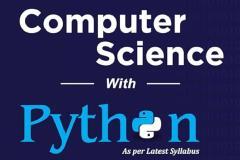Certainly! Here are some comprehensive notes on fundamental topics in physics:
### Mechanics
#### Kinematics
- **Displacement**: Change in position of an object.
- **Velocity**: Rate of change of displacement.
- **Acceleration**: Rate of change of velocity.
- **Equations of Motion**:
\[
v = u + at \\
s = ut + \frac{1}{2}at^2 \\
v^2 = u^2 + 2as
\]
where \( u \) is initial velocity, \( v \) is final velocity, \( a \) is acceleration, \( s \) is displacement, and \( t \) is time.
#### Dynamics
- **Newton’s Laws of Motion**:
1. An object remains at rest or in uniform motion unless acted upon by a force.
2. \( F = ma \) (Force equals mass times acceleration).
3. For every action, there is an equal and opposite reaction.
- **Friction**: Resistive force between two surfaces.
#### Energy and Work
- **Work**: \( W = F \cdot d \cdot \cos(\theta) \)
- **Kinetic Energy**: \( KE = \frac{1}{2}mv^2 \)
- **Potential Energy**: \( PE = mgh \)
- **Conservation of Energy**: Total energy in a closed system remains constant.
### Electromagnetism
#### Electrostatics
- **Coulomb’s Law**: \( F = k_e \frac{q_1 q_2}{r^2} \)
- **Electric Field**: \( E = \frac{F}{q} \)
- **Electric Potential**: \( V = k_e \frac{q}{r} \)
#### Current and Circuits
- **Ohm’s Law**: \( V = IR \)
- **Power**: \( P = IV = I^2R = \frac{V^2}{R} \)
- **Kirchhoff’s Laws**:
1. Junction Rule: Total current entering a junction equals total current leaving.
2. Loop Rule: Sum of potential differences in a closed loop equals zero.
### Thermodynamics
#### Laws of Thermodynamics
1. **First Law**: Energy cannot be created or destroyed, only transformed (\( \Delta U = Q - W \)).
2. **Second Law**: Entropy of an isolated system always increases.
3. **Third Law**: As temperature approaches absolute zero, the entropy of a system approaches a constant minimum.
#### Heat and Temperature
- **Heat Transfer**: Conduction, Convection, Radiation.
- **Specific Heat**: \( Q = mc\Delta T \)
### Waves and Optics
#### Wave Properties
- **Frequency** (\( f \)): Number of cycles per second.
- **Wavelength** (\( \lambda \)): Distance between consecutive crests or troughs.
- **Speed** (\( v \)): \( v = f\lambda \)
#### Light and Optics
- **Reflection**: Angle of incidence equals angle of reflection.
- **Refraction**: Change in direction of light when it passes from one medium to another (Snell's Law: \( n_1 \sin \theta_1 = n_2 \sin \theta_2 \)).
- **Lenses and Mirrors**: Focal length, real and virtual images, magnification.
### Modern Physics
#### Quantum Mechanics
- **Photoelectric Effect**: Emission of electrons when light hits a material.
- **Wave-Particle Duality**: Particles exhibit both wave-like and particle-like properties.
#### Relativity
- **Special Relativity**:
- Time dilation: \( t' = \frac{t}{\sqrt{1 - \frac{v^2}{c^2}}} \)
- Length contraction: \( L' = L \sqrt{1 - \frac{v^2}{c^2}} \)
- \( E = mc^2 \)
### Summary
Physics encompasses a wide range of concepts, from the motion of particles to the behavior of electromagnetic waves. The foundational principles such as Newton's laws, conservation of energy, and thermodynamic laws are crucial for understanding more advanced topics. Mastery of these basics is essential for exploring the complexities of both classical and modern physics.








